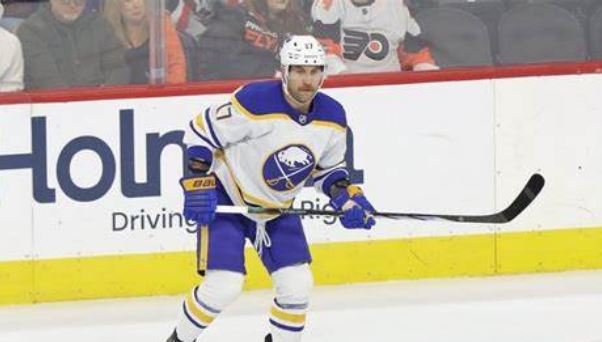When the Buffalo Sabres signed veteran forward to a one-year, $5 million contract last summer, it was viewed as a low-risk, high-reward move. He was expected to bring leadership and contribute secondary scoring while also being a potential trade asset if Buffalo fell out of playoff contention. In mid-January, Zucker expressed to The Athletic his interest in signing an extension, though he acknowledged it wasn’t in his control. “For me personally, it’s something I would be very interested in. If that time comes, we can have that conversation,” he said. Now, with the 4 Nations Face-Off underway and the Sabres trailing a wild-card spot by 12 points, the question remains—should Buffalo keep him or look to trade him before the NHL deadline?
Zucker’s Impact On The Sabres
At 33, Top star provides the experience that Buffalo’s young core lacks—the Sabres still have the NHL’s youngest roster, according to EliteProspects.com. Known for his tenacity and scoring ability, he has been a steady presence in the lineup and is on track to reach the 20-goal mark for the sixth time in his career. His 41 points rank fourth on the team. Sabres coach Lindy Ruff recently praised Zucker, admitting he has exceeded expectations. General manager Kevyn Adams has already shown interest in re-signing Zucker, having met with his agent during a recent road trip. As a pending unrestricted free agent this summer, Zucker’s combination of offensive production and leadership could be valuable to a Buffalo team looking to turn a corner and attract more experienced players.

A Potential Trade Piece?
Buffalo could ultimately benefit more from trading Jason Zucker. With their playoff chances dwindling, the team has already been involved in trade talks regarding key players like Bowen Byram, Dylan Cozens, and Alex Tuch. Zucker could be the next name added to that list, as contending teams might view him as an affordable rental option. Moving him while his value is high could be a smarter long-term strategy, especially if the return helps Buffalo compete next season, rather than committing to a multi-year extension.
Although his leadership isn’t necessarily in question, Zucker faced some criticism after the Sabres didn’t respond to a big hit on Tage Thompson. He defended the team’s approach, saying they were focused on winning, even though their position in the standings made a victory unlikely to change their playoff fate. Reflecting on the situation, Zucker told Buffalo News, “It’s such a learning curve when you have a young team. There are so many different aspects to it, and it makes it tough in certain situations knowing how to handle things properly.”